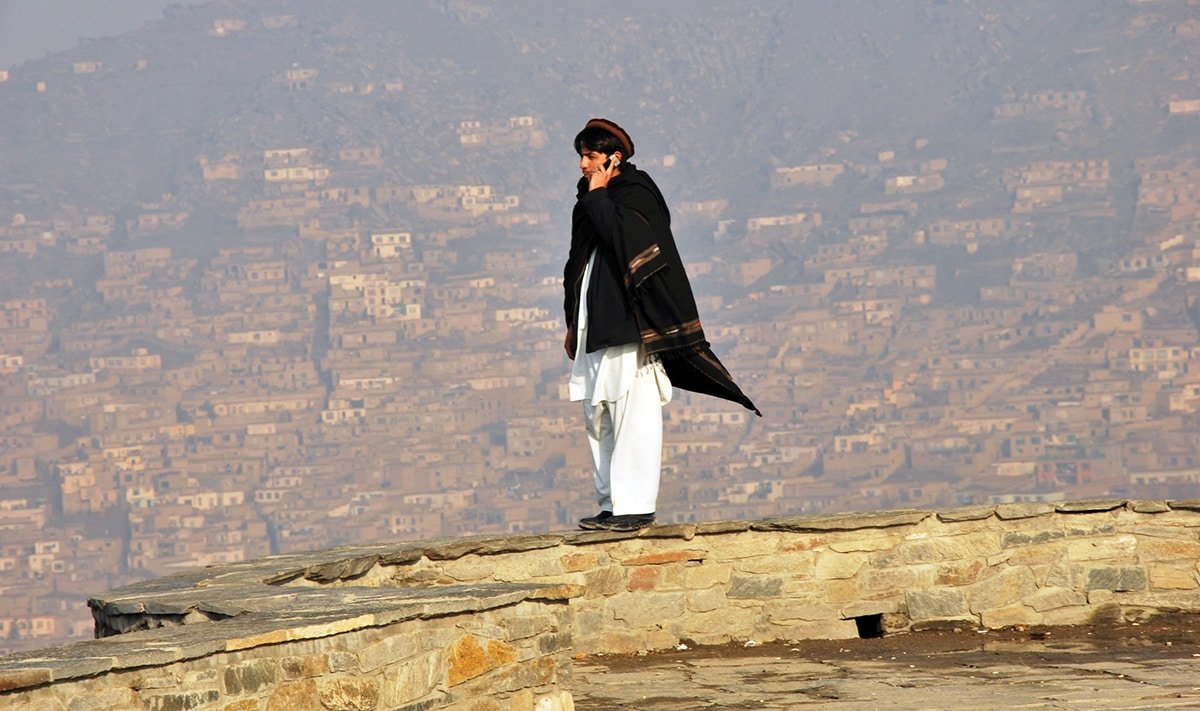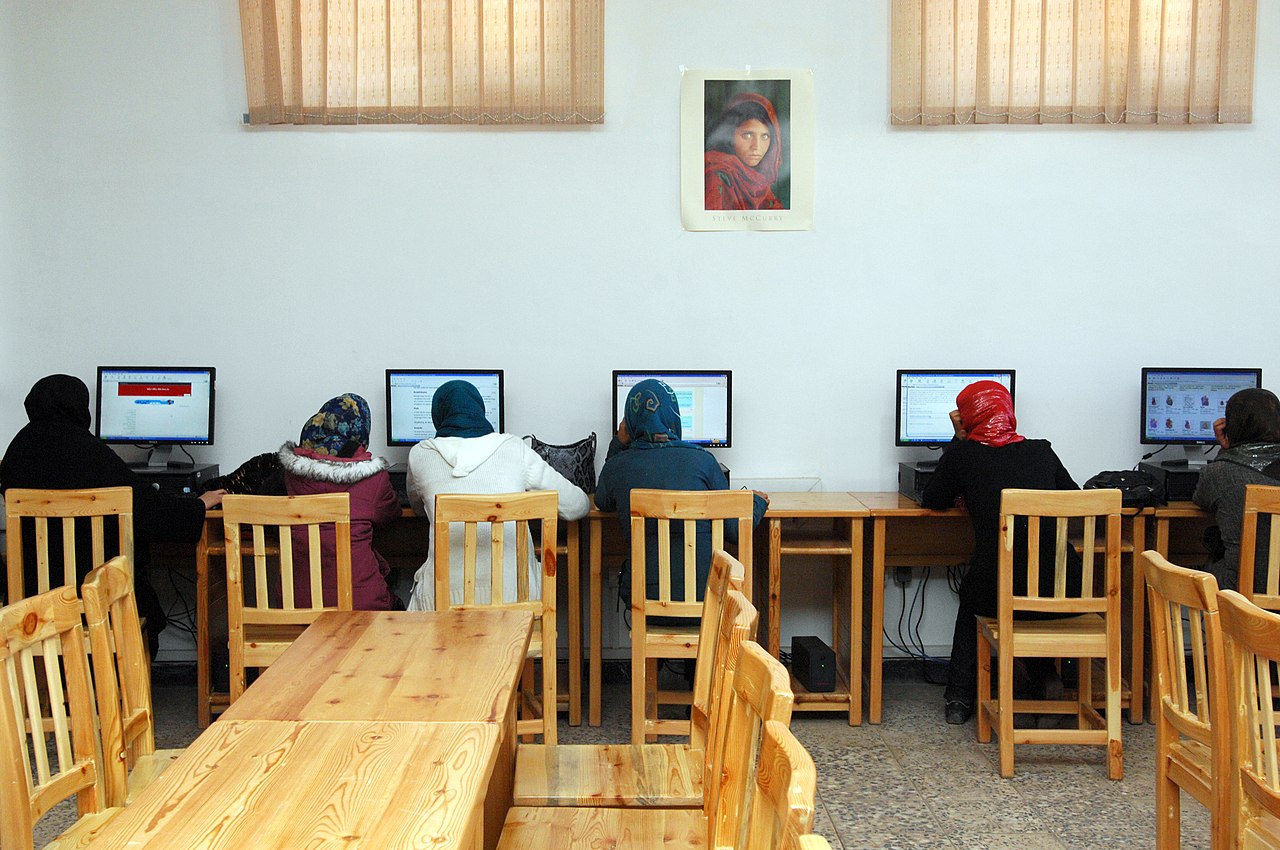KABUL (SW) – Despite the 21st century being renowned for technology and innovation, many young people in Afghanistan remain disconnected from this modern world due to various reasons.
Salam Watandar interviewed with 34 young Afghans in some provinces, revealing youths’ use of technology, innovation, and the internet in daily life is limited.
Out of the 34 participants in the survey, 10 have no access to technology and the internet due to living in remote areas; 17 have partial access, while 7 have full access and integrate technology and the internet into their daily routines.
The 10 individuals without access cited several barriers, including a lack of awareness about how to use the internet, distance from urban areas, poor internet quality, and adverse societal customs, which have kept them from embracing modern technology.
In various regions of Afghanistan, access to modern technology and innovation remains scarce for many residents.
Shir Hussain, a resident of Bamyan province, describes his limited access to technology and the internet, saying, “We live in an area where the internet does not work, so I use landline phone. The economy is also not good enough for me to afford it. I am not familiar with computers either.”
Fazlullah, a resident of Takhar province, echoes similar sentiments: “We do not know much about technology; we only have a television. We do not use the internet because of its cost and because it does not work properly.”
Hasibullah, also from Takhar, adds, “Most people here do not have much access. Some are unaware, and for some, the quality is poor, so they do not use it. I use a Nokia mobile phone; my economy is not good.”
Some girls in different provinces express how family constraints prevent them from using smartphones, thus keeping them disconnected from the world of technology.
Sana, a resident of Kunduz, says, “We have a television; my parents have mobile phones, but young girls cannot have them. Also, the internet is expensive.”
Mursal, also from Kunduz, adds, “We have no access at all; only my father has a mobile phone. We are also not even allowed to go to school, how we can have a mobile phone.”
Similarly, Nikbakht from Bamyan, states, “We, seven sisters, do not have mobile phones. We do not use them, only my father does, as well as, we have never heard of artificial intelligence that how it works, we do not understand it.”
Challenges of high internet costs for Afghan users
Out of the total of the interviewees, 17 young individuals who have relatively limited access to the internet and technology, express how the high cost of internet services sometimes keeps them distant from the latest global trends and innovations. Additionally, 5 others highlight how expensive internet packages can be, yet they are compelled to use it to address educational challenges.

Mohammad, a resident of Kabul and a journalism graduate, despite having access to technology and the internet, complains about the high cost and poor quality of internet service. He emphasizes that the high price of internet services prevents him from accessing educational materials.
Mohammad says, “Our problem is somewhat resolved, but the high cost of the internet is definitely influential. It is expensive, and the quality is not good enough. I need to watch educational materials on YouTube, but I cannot.”
Zuhal, another interviewee based in Kabul with some access to technology, also expresses dissatisfaction with the quality of internet service. She remarks, “Today’s world is a world of technology, and whether one likes it or not, everyone has access. I have about 50% access. The internet in Afghanistan is very weak; it is difficult to use, and it is very expensive.”
Empowering Afghan youth through technology access
Among 34 young individuals, that Salam Watandar has interviewed with, 7 who have access to technology, believe that access to technology can enhance their personal growth. They express that universities and schools are closed to them, but access to the world of technology empower them to pursue education.
Maryam and Hamida, two residents of Kabul who have been left out of education after the closure of universities, say that the conditions for accessing technology have been favorable to them. They now utilize platforms like YouTube and other beneficial applications for online learning.
Maryam explains, “Technology plays a significant role in people’s lives. I use it for online classes, especially now that schools are closed. YouTube helps me a lot, and I use it for learning English.”

Hamida adds, “I have online classes, and it has been facilitated. Youth in Kabul have access to technology; even children now have access. However, in the provinces, they do not have access due to problems like lack of electricity and proper internet access.”
Some of the interviewees in this report highlight that alongside acquiring general knowledge, they also use the internet and technology for entertainment purposes.
Mustafa Amiri, a recent journalism student, mention that besides using technology for educational purposes, he also utilize it to pass his leisure time. “I do not see any obstacles to accessing technology, and I use it mostly for education and entertainment. I use Facebook and play Clash of Clans game for leisure, he added.
“We have 100% access. We use it for gaming, Instagram, and TikTok. We have Wi-Fi, and it is affordable,” said Ahmad, a law graduate
Leveraging modern technology for business and work
Several young individuals in this report indicate that they are increasingly using modern technologies in their work and business activities.
Lutfurahman, a Kabul resident and business administration student, says, “I have been using ChatGPT for about a year now; it has various types, and I use all of them. I have been using the latest ChatGPT for a year. Google Gemini is what I use more for work and office-related tasks.”
Obaid, another Kabul resident and journalism student, also notes, “Nowadays, ChatGPT has made many tasks easier. I use it every day, and it is very beneficial to people.”
Meanwhile, Jalaluddin Shams, spokesperson for the Afghanistan Telecom Regulatory Authority (ATRA), reports that over 12 million people in Afghanistan currently have access to the internet.
He says, “Currently, 23 million people in Afghanistan have access to telecommunication services, and of those, more than 12 million use the internet. Last year, ATRA connected most universities to Wi-Fi to enable students to use the internet.”
Despite this progress, access to the internet for Afghan youth remains limited compared to many other countries, where the internet is a crucial tool for work and income generation.






